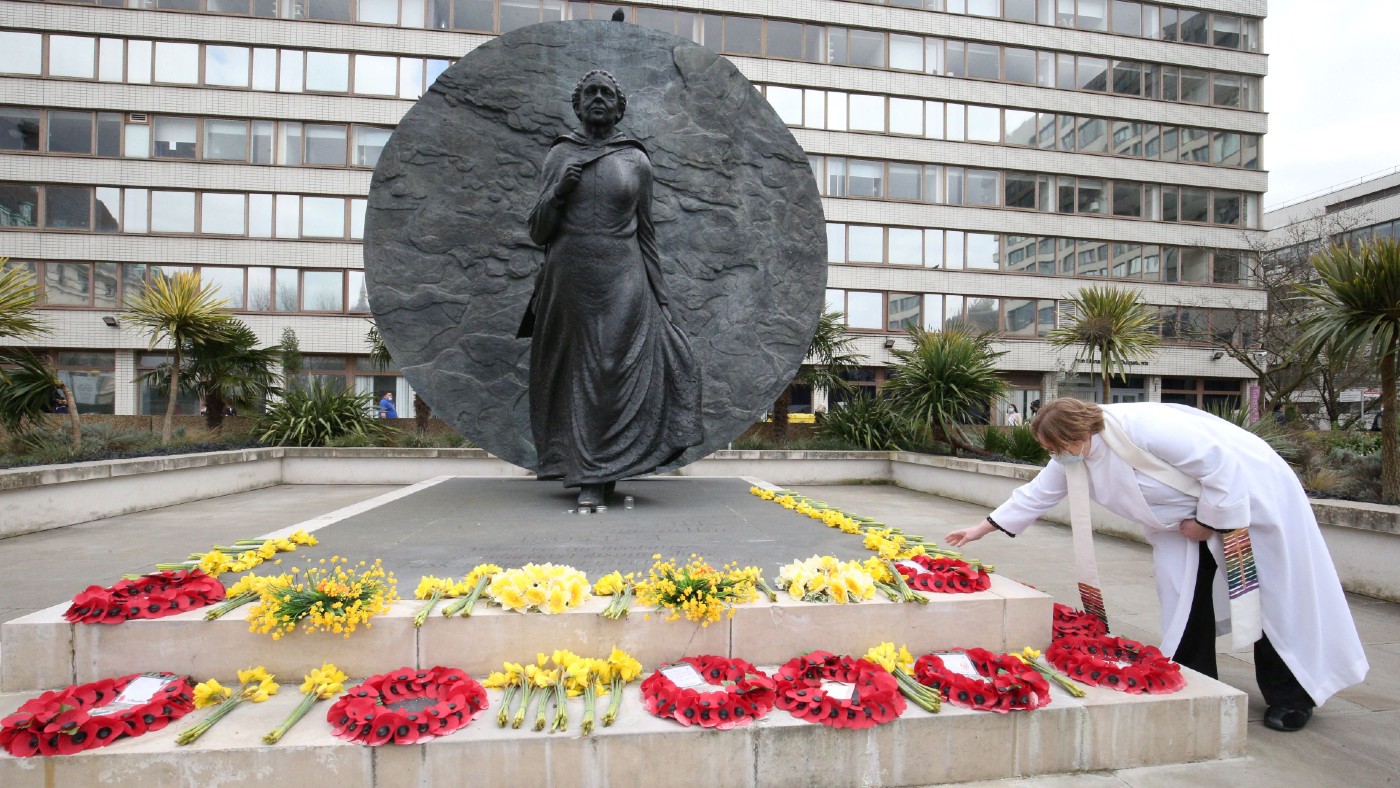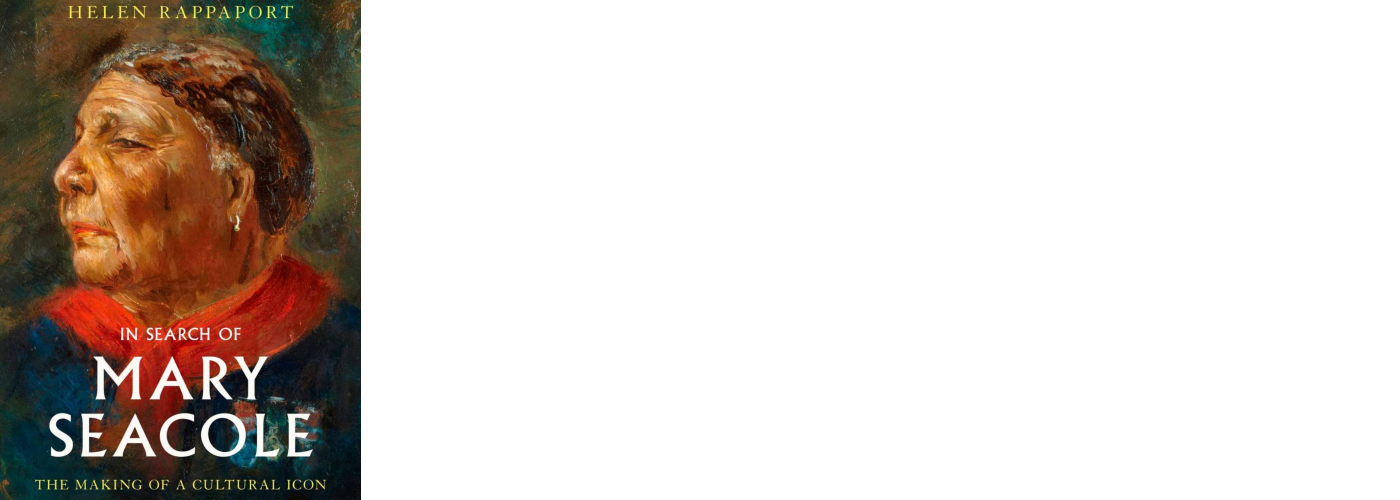In Search of Mary Seacole: a ‘wonderfully informative’ biography
Helen Rappaport sets out to bring ‘clarity to Seacole’s life’

A free daily email with the biggest news stories of the day – and the best features from TheWeek.com
You are now subscribed
Your newsletter sign-up was successful
The “extraordinary” Mary Seacole – who was renowned for giving succour to British troops during the Crimean War – has in recent years become something of a “political touchstone”, said Andrew Lycett in The Spectator. While many see her as a black pioneer who bravely made her way in “an inhospitable society”, others claim she was something of a “charlatan” – a woman who falsely presented herself as a nurse and “doctress” when in fact she mainly sold food and drink.
In this long-awaited biography, Helen Rappaport sets out to bring “clarity to Seacole’s life”, a task made particularly challenging owing to the patchiness of much of the evidence, and by the fact that Seacole herself was often evasive, especially when it came to her upbringing in Jamaica. Yet Rappaport triumphantly brings her to life, revealing her to be a “hardy, enterprising and intensely patriotic” woman who, while certainly no saint, was a significant force for good.
Seacole was born out of wedlock in 1805 to a 15-year-old mixed-race woman named Rebecca and a Scots army officer named John Grant, said Wendy Moore in Literary Review. In her early adulthood in Jamaica she became a “successful businesswoman”, running a lodging house and selling herbal remedies. She acquired her surname in 1836 by a pragmatic marriage to an English merchant named Edwin Seacole, who died eight years later.
The Week
Escape your echo chamber. Get the facts behind the news, plus analysis from multiple perspectives.

Sign up for The Week's Free Newsletters
From our morning news briefing to a weekly Good News Newsletter, get the best of The Week delivered directly to your inbox.
From our morning news briefing to a weekly Good News Newsletter, get the best of The Week delivered directly to your inbox.
Soon after the Crimean War broke out in 1853, she travelled to England and offered her services to the British Army as a nurse – only to be rejected. Instead, she financed her own trip to Crimea, setting up a canteen and “general store” near the front that doubled as a “walk-in clinic” for injured soldiers.
Seacole’s presence in the Crimea greatly irked Florence Nightingale, who regarded her as a Creole upstart and couldn’t stand her, said Ysenda Maxtone Graham in The Times. When Seacole visited her hospital in Scutari, Nightingale made her sleep in the “washerwomen’s flea-ridden quarters”. She also refused Seacole’s offer of care when she fell ill with fever in 1855, later writing that Seacole “wanted to quack me”.
This antipathy, Rappaport suggests, was driven largely by jealousy: “Old Mother Seacole” was loved not only for her medical care, but also for her meat pies and her willingness to serve alcohol. Seacole returned to England a celebrity, but had lapsed into obscurity by her death in 1881. Rappaport performs a valuable service in this “wonderfully informative book” by presenting Seacole in “all her roundness”.
Simon & Schuster 416pp £20; The Week Bookshop £15.99
A free daily email with the biggest news stories of the day – and the best features from TheWeek.com

The Week Bookshop
To order this title or any other book in print, visit theweekbookshop.co.uk, or speak to a bookseller on 020-3176 3835. Opening times: Monday to Saturday 9am-5.30pm and Sunday 10am-4pm.
-
 Why are election experts taking Trump’s midterm threats seriously?
Why are election experts taking Trump’s midterm threats seriously?IN THE SPOTLIGHT As the president muses about polling place deployments and a centralized electoral system aimed at one-party control, lawmakers are taking this administration at its word
-
 ‘Restaurateurs have become millionaires’
‘Restaurateurs have become millionaires’Instant Opinion Opinion, comment and editorials of the day
-
 Earth is rapidly approaching a ‘hothouse’ trajectory of warming
Earth is rapidly approaching a ‘hothouse’ trajectory of warmingThe explainer It may become impossible to fix
-
 Kia EV4: a ‘terrifically comfy’ electric car
Kia EV4: a ‘terrifically comfy’ electric carThe Week Recommends The family-friendly vehicle has ‘plush seats’ and generous space
-
 Bonfire of the Murdochs: an ‘utterly gripping’ book
Bonfire of the Murdochs: an ‘utterly gripping’ bookThe Week Recommends Gabriel Sherman examines Rupert Murdoch’s ‘war of succession’ over his media empire
-
 Gwen John: Strange Beauties – a ‘superb’ retrospective
Gwen John: Strange Beauties – a ‘superb’ retrospectiveThe Week Recommends ‘Daunting’ show at the National Museum Cardiff plunges viewers into the Welsh artist’s ‘spiritual, austere existence’
-
 Bad Bunny’s Super Bowl: A win for unity
Bad Bunny’s Super Bowl: A win for unityFeature The global superstar's halftime show was a celebration for everyone to enjoy
-
 Book reviews: ‘Bonfire of the Murdochs’ and ‘The Typewriter and the Guillotine’
Book reviews: ‘Bonfire of the Murdochs’ and ‘The Typewriter and the Guillotine’Feature New insights into the Murdoch family’s turmoil and a renowned journalist’s time in pre-World War II Paris
-
 6 exquisite homes with vast acreage
6 exquisite homes with vast acreageFeature Featuring an off-the-grid contemporary home in New Mexico and lakefront farmhouse in Massachusetts
-
 Film reviews: ‘Wuthering Heights,’ ‘Good Luck, Have Fun, Don’t Die,’ and ‘Sirat’
Film reviews: ‘Wuthering Heights,’ ‘Good Luck, Have Fun, Don’t Die,’ and ‘Sirat’Feature An inconvenient love torments a would-be couple, a gonzo time traveler seeks to save humanity from AI, and a father’s desperate search goes deeply sideways
-
 A thrilling foodie city in northern Japan
A thrilling foodie city in northern JapanThe Week Recommends The food scene here is ‘unspoilt’ and ‘fun’